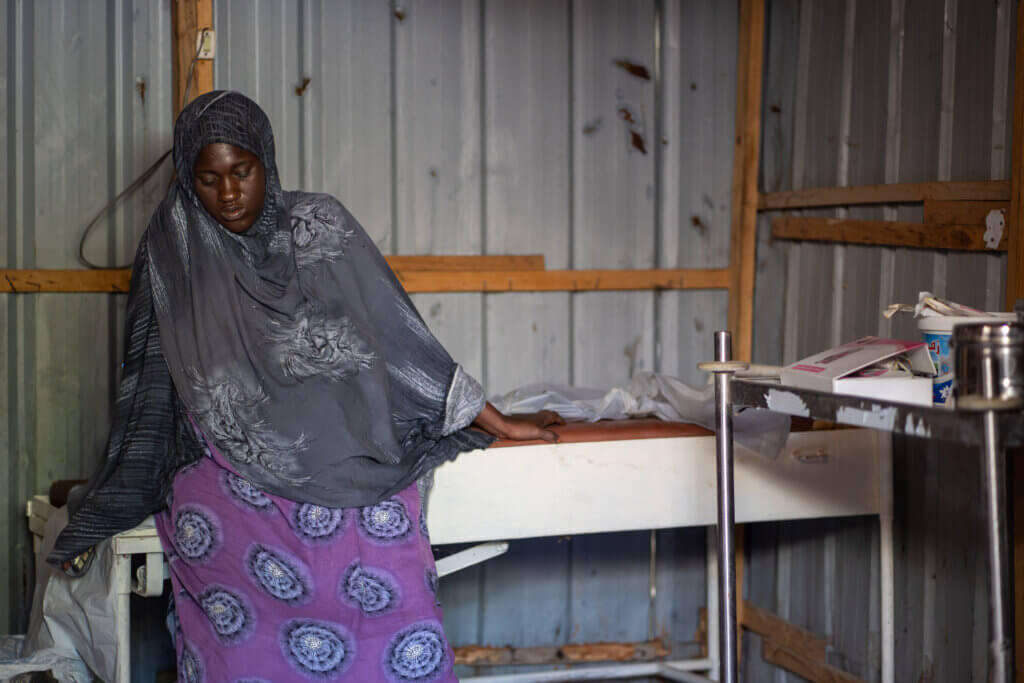
While humanitarian crises in areas such as Gaza, Haiti, and Sudan are worsening, humanitarian aid budgets are also being slashed. For the millions of people surviving catastrophic emergencies around the globe, chronic underfunding is now meeting funding cuts with devastating results.
This compounded lack of funding means that women surviving crises, who are already traumatized and prone to childbirth complications, will have to give birth without midwives or sufficient medicines and equipment. It means that survivors of violence will have nowhere to turn as safe spaces around the globe are being forced to lock their doors. It means that women and girls who wish to avoid unintended pregnancy and sexually transmitted infections will lose access to family planning advice, education, and supplies.
The record funding gaps that the United Nations sexual and reproductive health agency (UNFPA), is facing in 2025 – which includes a total defunding from the U.S. government – is already impacting our lifesaving work and the women and girls who rely on them.
The lights for our projects are flickering. Here’s what’ll happen if they go out.
Safe spaces and health facilities for refugees and host communities will be forced to close
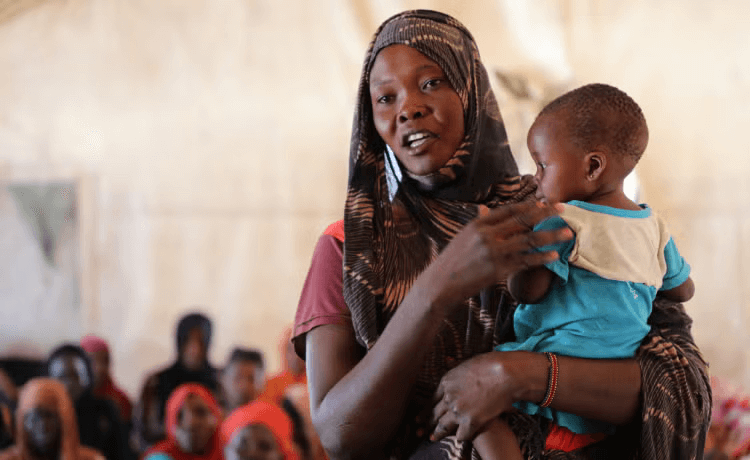
“Here at this center, we can forget all the trauma we went through. If it closes, where do we go?”
One woman, a survivor of violence at a UNFPA safe space in South Sudan, shared this quote with us. She was distraught to hear that the safe space – which provides mental health support and offers protection for both refugees fleeing conflict and locals facing violence – might be closing soon.
A health facility near the safe space – which handles a wide range of reproductive health services, including clinical management of rape, maternity care, and emergency obstetric and newborn care – isn’t immune to the underfunding crisis either. Due to recent funding cuts, three facilities in South Sudan have already had to scale back operations, and two are shutting down entirely. This facility will likely close in a month’s time.
Wod, a case worker at the safe space, explained, “We only have one month left [of funding] before the project will have to close. If it closes, we will go back to zero.”
In crises, women and girls are twice as likely to be subjected to acts of violence then in non-humanitarian contexts. Yet a lack of funding means that the few resources that are available to survivors of violence – medical care, counseling, and access to safe spaces – will be shut down.
In South Sudan alone, the loss of funding from the U.S. government means that more than 330,000 displaced women and girls are losing access to these services.
“We’re running out of options,” said UNFPA’s emergency coordinator in South Sudan. “We are very grateful for the donors who have responded, but we’re appealing to others to ensure we can continue lifesaving interventions. We must leave the lights on for these women and girls.”
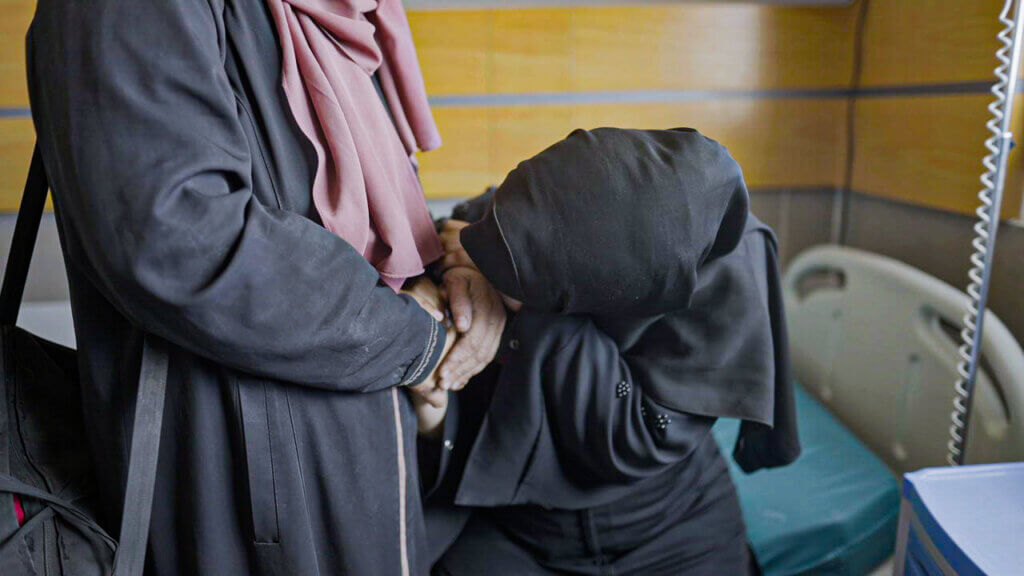
Pregnant women and newborns will lose lifesaving healthcare
In Gaza, it is nearly impossible to have a healthy pregnancy. One in three pregnancies right now are high risk, women are three times more likely to miscarry or die from pregnancy and childbirth complications, and one in five babies are born prematurely or in need of advanced medical care.
But with the U.S. government defunding our work in Gaza and the West Bank by $45 million, these programs and many others are now in jeopardy. For the hundreds of thousands of people in Gaza teetering on the brink of famine and without access to functioning hospitals, this funding loss has already been catastrophic.
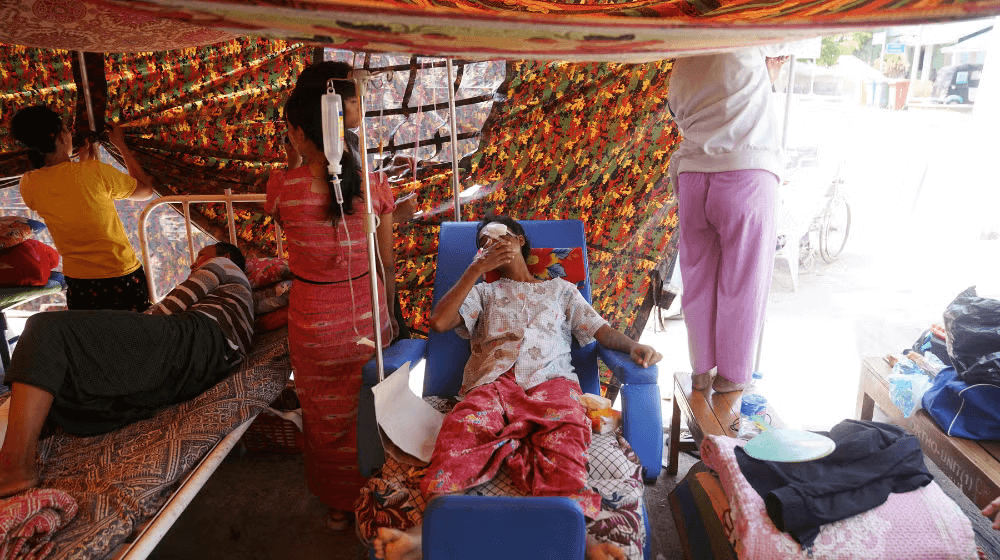
Humanitarian assistance won’t be able to reach people in emergencies
When crisis strikes, it is women and girls who are harmed the most. That’s why we work tirelessly to deploy midwives and other health staff the moment we receive word of an emergency. Because of this strategy, we were able to reach Than, a woman in Myanmar, shortly after a massive earthquake destroyed her village.
“We had nowhere to turn – every nearby health facility was damaged. The thought of needing medical help but having nowhere to go was terrifying,” Than told us. In the days following the earthquake, she saw essentials like food and clean water become increasingly scarce.
Then, a UNFPA mobile health clinic arrived – one of twenty that UNFPA supports in Myanmar. “I felt relief rush through me – it truly saved our lives,” Than recalled. “For the first time since the earthquake, I finally felt safe again.”
But with 20 million people in Myanmar affected by the ongoing humanitarian crisis and 3.5 million people displaced, there is only so much that twenty mobile health clinics can do. And even still, this already underfunded emergency is likely to face more cuts due to global funding shortages.
“The clinic restored my hope and strength, allowing me to help others who needed support,” one woman who received help from a UNFPA mobile clinic shared. “Now we need this support to continue – not just for us, but for women and girls affected by the earthquake whose lives are counting on this critical aid.”
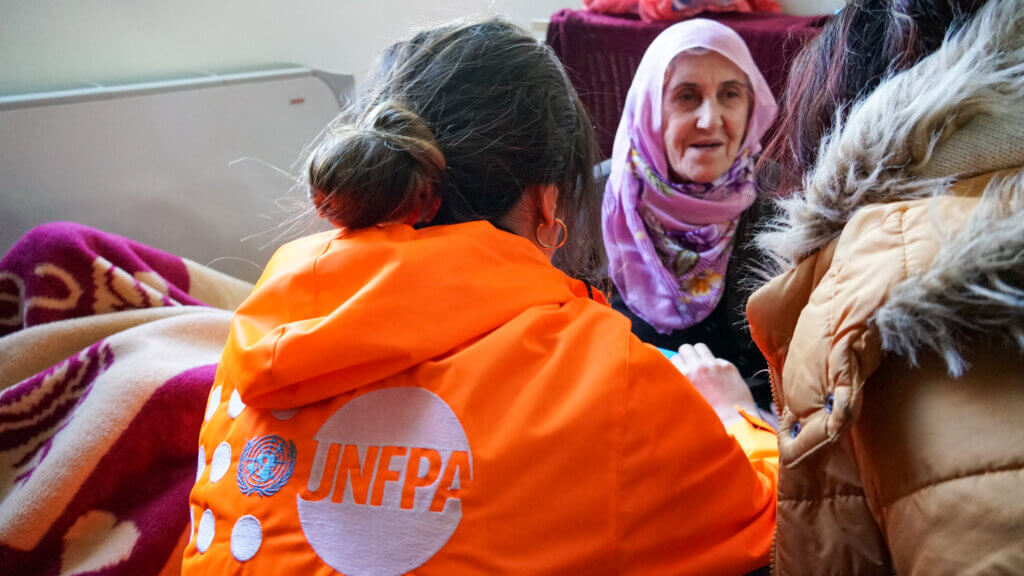
Don’t let the lights go out
In the wake of war and crisis, the lights are going out on lifesaving UNFPA programs – and women and girls are paying the price.
In 2025, we are being forced to shut down many of the programs that made this work possible.